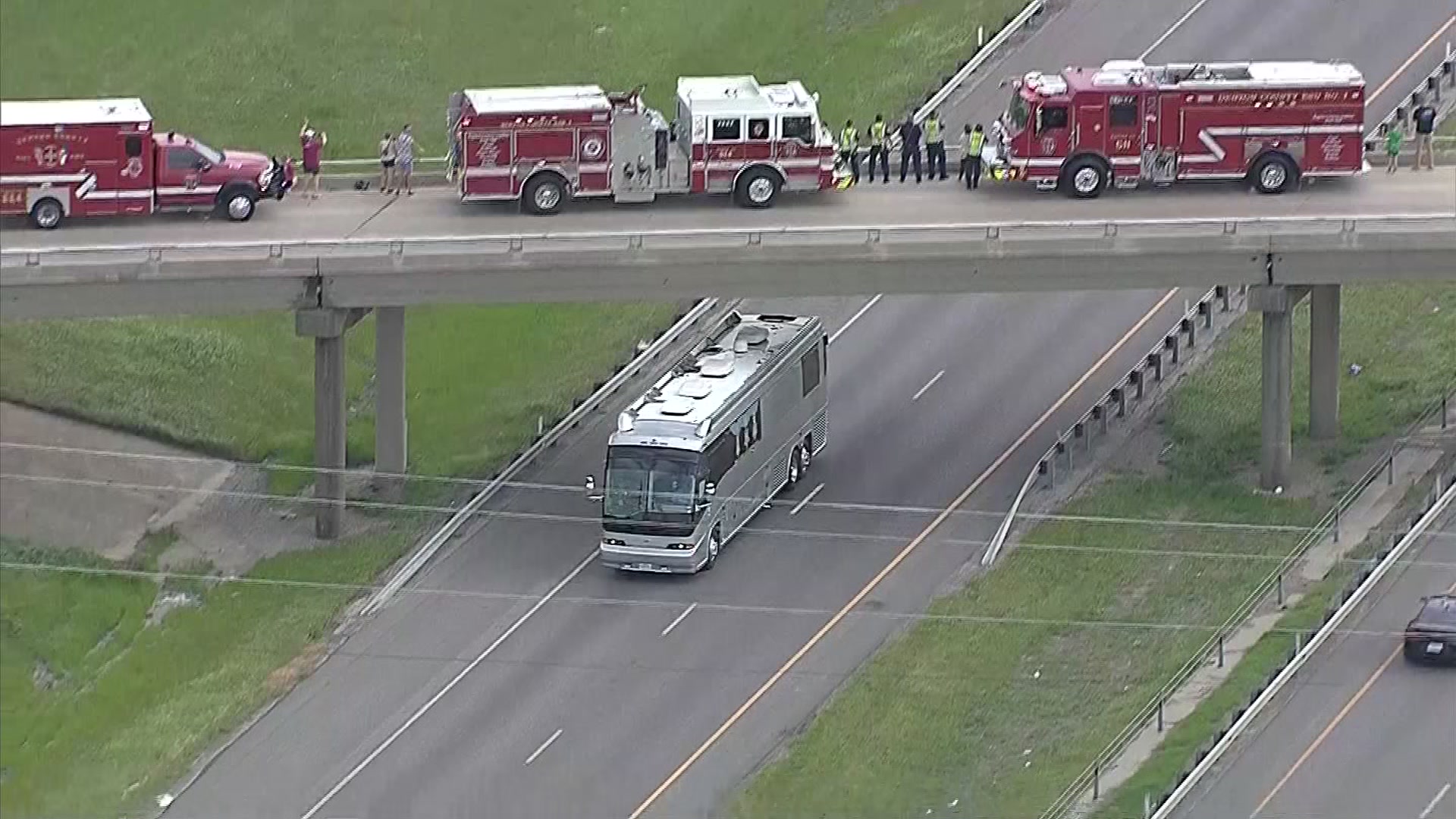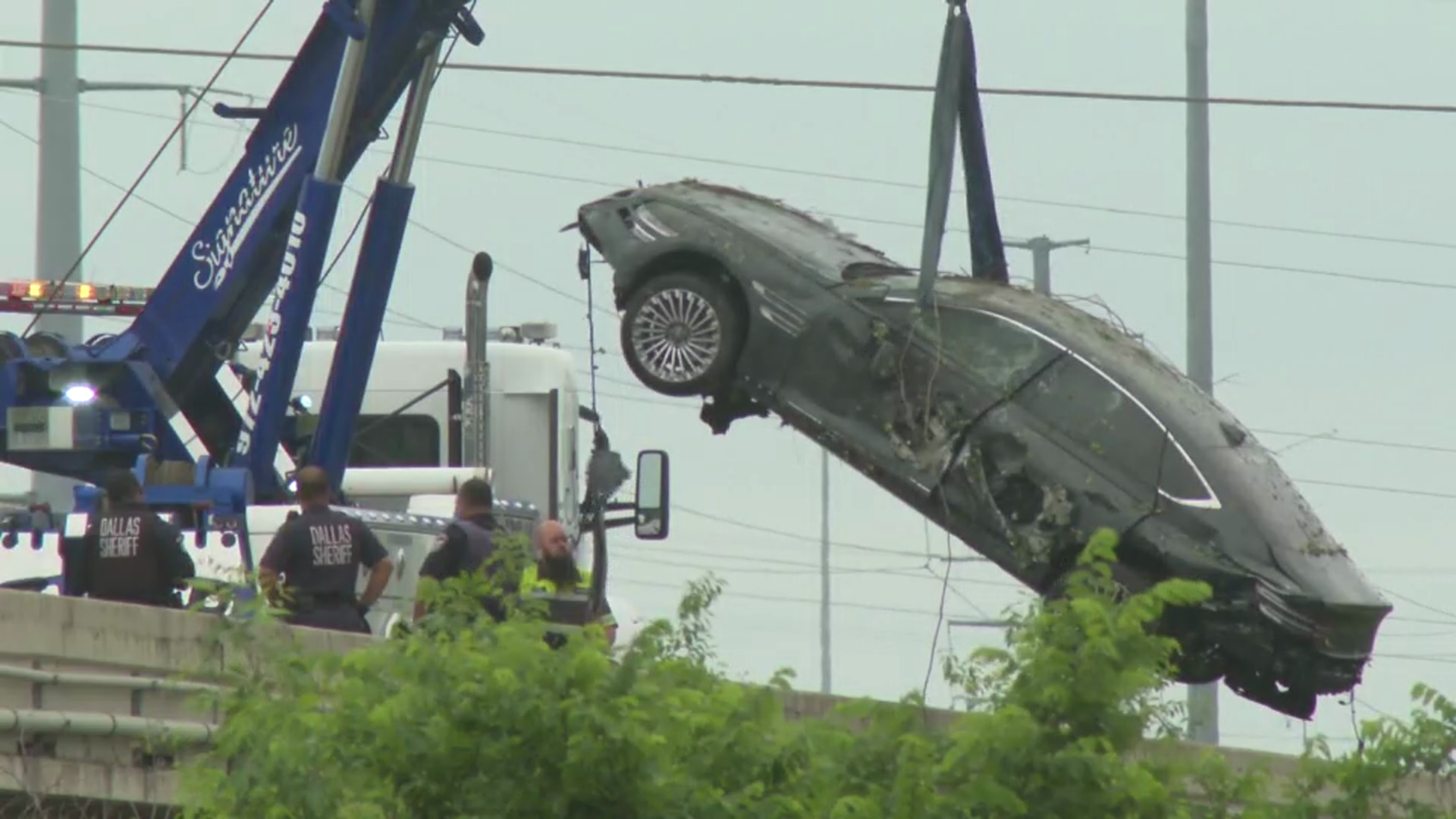Tuesday morning during Tarrant County Commissioner's Court, the public health director laid out concerns with the number of mosquitoes carrying the West Nile virus.
"First thing I'm worried about is mosquito activity. Certainly, the positivity rate for mosquitoes has been pretty high in Tarrant County," said Vinny Taneja, the Tarrant County Public Health Director. "We hit a high of almost 60 percent of mosquito pools getting positive (results) in northeast Tarrant County, for the entire county 40 percent was positive."
He said the county has "upped" its ground spraying efforts to three nights in a row around a one-mile radius where mosquito traps are.
The county said the best time to spray is in the evening when mosquitoes are in flight. Taneja said that's when the chemical is most effective, but they have to wait until late at night to spray when people are not around.
Taneja said they've found that mosquitoes are resting late at night which brings up an issue in the effectiveness of the chemical. The other problem is the lack of reach the chemical has.
“The issue is, when the trucks are going around, they’re doing street based spraying and you’ve got the building structure of your house in the way," Taneja said. “What we’re finding though is, a lot of people who live in private backyards backing up to a tree line or backing up to a creek, and this chemical the way it’s applied, may not get there."
The county is considering aerial spraying as a way to combat mosquitoes from the air to reach these places. Taneja said a different chemical is used and helps kill mosquitoes in vegetation.
Local
The latest news from around North Texas.
"It’s a little heavier powdery type substance, if you will, that will drop to the ground but it has very good efficacy, and if you do an aerial application you can cover all those areas that a truck cannot reach," he explained.
Taneja said the county is doing its due diligence to explore the option.
“If you have aerial and ground based spraying, then it’s better efficacy, both have their values both have their challenges, so you have to apply all tools supply to get the job done," Taneja said.
He said they are thinking about the environment and concerned how the chemical could impact bees.
"When and if that conversation happens, we would be engaging all the beekeepers in the area, just to make sure we understand where their businesses are, giving them instructions on how to protect their beehives, or a lot of times if we can avoid the area, we would avoid the area. So all of those efforts are part of our due diligence package that I was talking about , make sure we tell all of our partners that if this is going to happen, how do we make it work safely for everybody," Taneja said.
The county is in the process of reaching out to city managers in the county as well as looking into how much it would cost.
During Tuesday's meeting, he told the court they've had conversations with the Centers for Disease Control and Prevention and the Texas Department of State Health Services about the option.
He said the idea is still premature.
A spokesperson for Tarrant County Public Health Department said it's unknown when and if the county has used this method before. If they have, the county said it was at least a decade ago.
The last time an aerial spraying happened in North Texas was in 2012 in Dallas County.
Tenaja said in the meantime, they've been asking all of their city partners and individuals to help out with mosquito mitigation on their own, including normal spraying as well. He believes it is working but says the numbers are still high.
"In the northeast, we are down to 50% positivity rate and in the rest of the county around 35 percent, but we are still pretty high and it's staying high for a long time," Tenaja said.
He said it translates into infected mosquitoes biting people and they have seen human cases "ramp" up.
"Last week when I spoke to commissioner's court we only had two cases and one was a death, well today we have nine cases, seven of those came within a period of two days, yesterday and today, so that's concerning that we're starting and upward trend," he said.
Taneja said they're seeing more severe cases versus mild and believe people who have a symptom of a fever may think they have COVID-19. He said people may get tested, receive negative results then stay home. Taneja is worried there may be under-reporting.
Public health officials are reminding people to remove standing water, limit time outdoors at night, and if you have to be outside, wear long sleeves and insect repellent.



